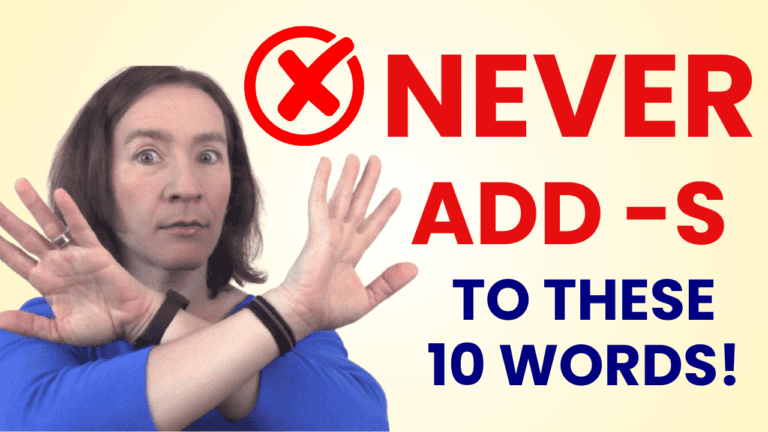
Download 30 “ask the teacher” lessons
What’s the difference between “I haven’t…” and “I have never…”?
Both use the present perfect tense in English, but they don’t mean exactly the same thing!
Let’s look at examples, so you’ll know how to use “I haven’t” and “I have never” correctly.
I Haven’t …
This means that something has not happened up to now, but it could still happen in the future.
- I haven’t eaten lunch yet. (= maybe I will later)
- I haven’t finished my homework. (= it’s still in progress)
- I haven’t seen that movie. (= but I might watch it sometime)
We can also use “I haven’t” to talk about something that has happened in the past, but has not happened recently:
- I haven’t ready any good books lately. (= I have in the past, but not recently)
- I haven’t heard from him this week. (= I have heard from him in the past, but not this week)
- I haven’t traveled recently. (= I have in the past, but not in the recent past)
I Have Never …
This means that something has not happened even once in your entire life (up to now).
- I have never eaten sushi. (= not even once in my life)
- He has never been to New York. (= zero times)
- We have never played golf. (= never in the past, not once)
Use “I have never” to emphasize zero experience.
Quick Contrast: I haven’t vs. I have never
- I haven’t tried this cake yet. (= I haven’t eaten it so far, but maybe I will later.)
- I have never tried this cake. (= I have never eaten this type of cake in my life.)
- I haven’t traveled this year. (= not this year so far, but yes in the past)
- I have never traveled abroad. (= at no time in my life.)
✅ Summary
- I haven’t… = not up to now (but maybe in the future) or not recently (but yes in the past)
- I have never… = not once in my life (zero times)








